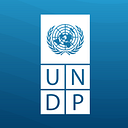Transparency, accessibility, communication: how online education boosts social development
Online education is becoming a universal tool for self-development.
Interactive courses help you gain the skills required for career growth, effective project implementation and advance your results at the university or school.
At the same time, access to high-quality knowledge can positively influence not only the development of an individual but society as a whole.
How does online education change the Ukrainian community? How do civic and state organizations already use this tool to achieve their goals?
We discussed these issues with participants of the Forum for the Civil Society Organizational Development of Ukraine “Dream 3.0 Designed Impact,” representatives of the Prometheus and EdEra online platforms and the Chesno Civic Movement.
Here are three main benefits of online education highlighted during the discussion:
1. Providing access to quality education anywhere anytime
Online courses provide equal access to knowledge for everyone, regardless of where they locate.
Thanks to this feature of online education, the National Agency on Corruption Prevention (NACP) has achieved impressive results in spreading information about conflict of interest and the e-declaration register among civil servants, lawyers, and activists.
Some 42 thousand citizens subscribed to the following online courses: “Conflict of interests: need to know” and “How to submit an e-declaration”.
Due to the unprecedented popularity of the courses, Prometheus and NACP continued the cooperation to develop practical materials on effective anti-corruption tools.
“Conflict of interest and functioning of the e-declaration register are very complex and tricky topics. That is why, they should be studied from the theoretical and practical point of view,” notes co-founder of the Prometheus online platform Viktoria Prymachenko.
Thus, the release of three new online courses concentrated on practical cases will be available this winter: “Anticorruption programs for the authorities”, “Conflict of interests: need to know! From theory to practice” and “Declare with integrity!”
2. Improving formal education practices in Ukraine
Using materials developed by online educational platforms during classes in schools and universities is gradually becoming a common practice.
For instance, since 2016, over 55,5 thousand students in 586 schools have participated in an anti-corruption lesson based on the materials developed by the EdEra online education studio.
“The purpose of our scenarios for the anti-corruption lesson is to show that corruption takes place not only in offices of high-ranking officials but also in everyday life, and in all cases leads to tragic consequences,” says EdEra Executive Director Illia Filippov.
On 9 December 2018, to mark International Anti-Corruption Day, EdEra offers three new anti-corruption scenarios that will help make interactive lessons interesting for students.
The materials were developed with the participation of prominent anti-corruption activists: chairman of the Anti-Corruption Centre Vitalii Shabunin, BIHUS.info journalist Alisa Yurchenko, and executive director of the Anti-Corruption Headquarters Serhii Mytkalik.
3. Becoming an important channel for communication with young people
According to the International Republican Institute (IRI) study, less than a third of young Ukrainians plan to take part in elections next year. This trend is observed in most countries of the world: young people believed that elections would not change anything for the country’s development.
The course “Politicians: How to choose with no regrets” from the Chesno Civic Movement is able to convince you in the opposite — every vote is important.
“In the course, we wanted to tell how not to be deceived and how to recognize the manipulation of politicians. Therefore, we explain what the state is, who are politicians, what political parties do and what power the voters have,” explains Oleksandra Kuziva, Campaign Coordinator at Chesno.
Charismatic lecturers, the absence of boring explanations, and attractive promotional videos from opinion leaders. TV presenters Michael Schur, Ihor Kondratiuk, and Viacheslav Uzelkov, actress Irma Vitovska, publisher Dana Pavlychko, blogger Anton Khodza and journalists Tetiana Danilenko and Yurii Marchenko — the developers have foreseen everything to make the course interesting.
The mentioned examples of the projects prove that online education is becoming an innovative tool for dissemination of important knowledge.
With an access to a regular smartphone, you also have the opportunity to create your own products for sharing ideas in your community, city, or even the country.
Be brave! Develop yourself and help others with their self-growth. Become part of the community that builds a transparent and successful future for your country.
The initiative is realized under the Enhanced Public Sector Transparency and Integrity Project, implemented by UNDP in Ukraine and funded by the Ministry of Foreign Affairs of Denmark (2015–2018).
